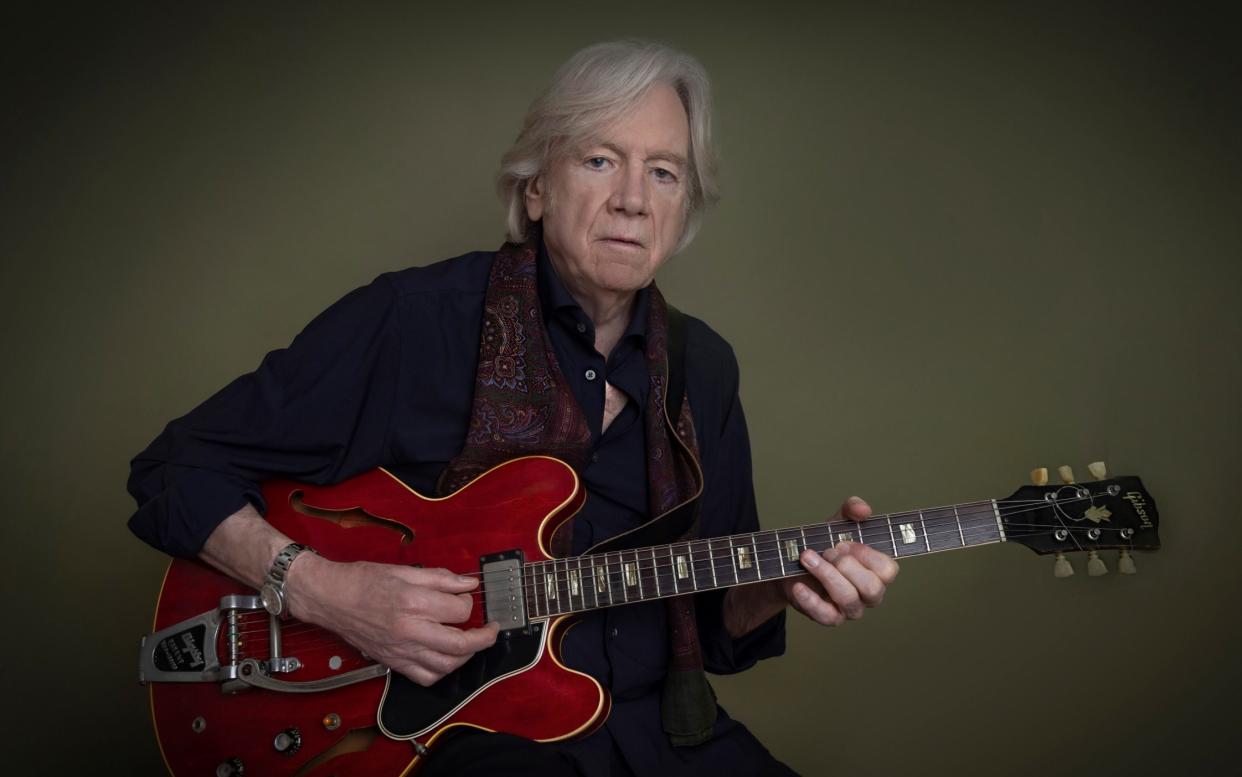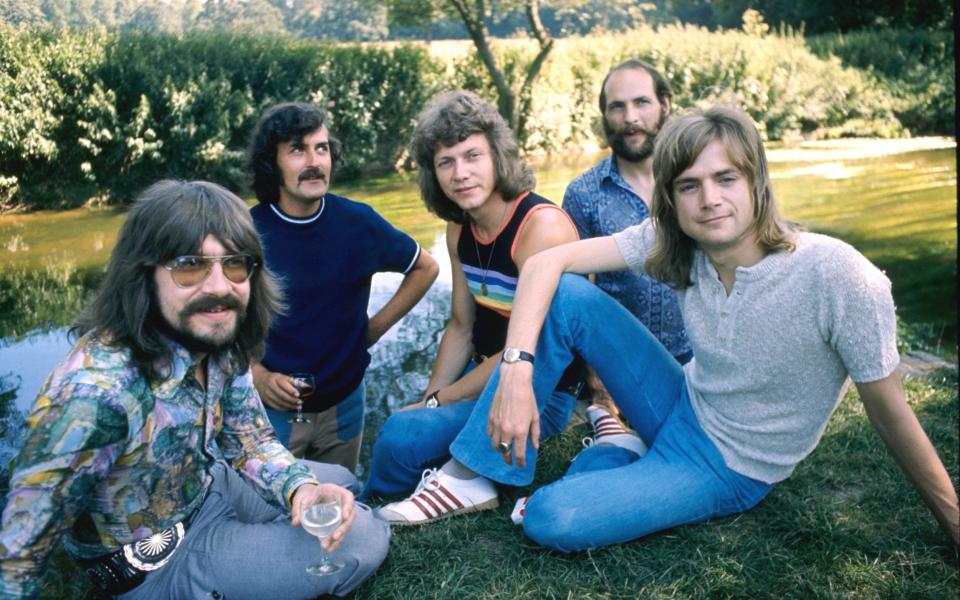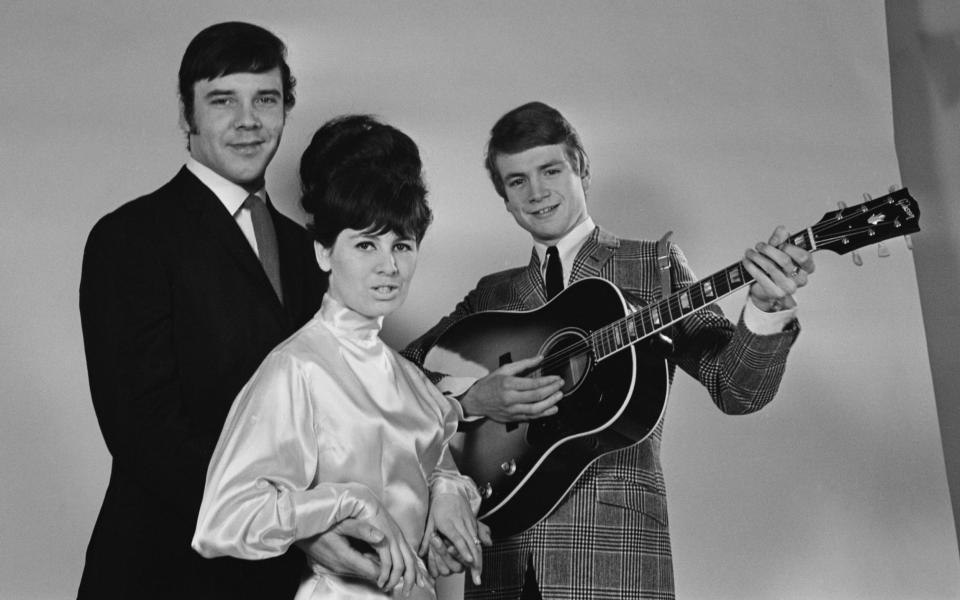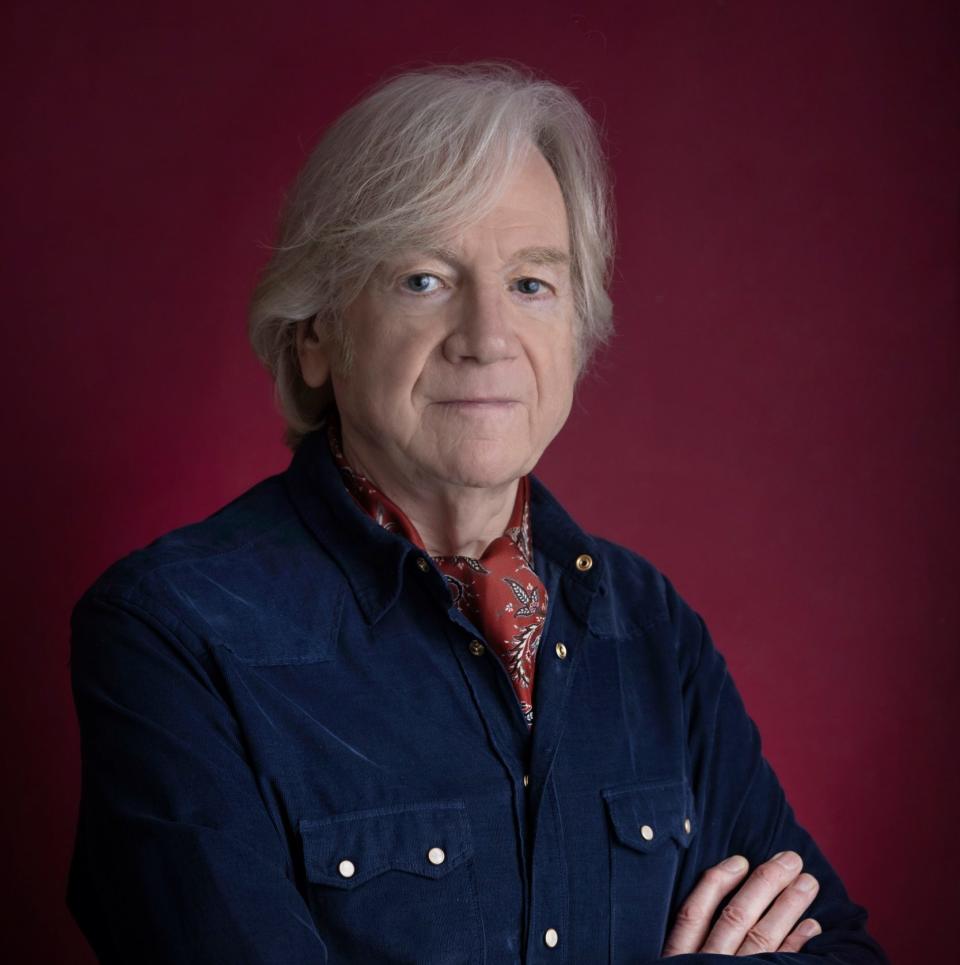The Moody Blues’ Justin Hayward: ‘I’m the band member from hell’

Justin Hayward was on tour when he turned on the television and saw Timothée Chalamet advertising Bleu de Chanel The charming Chalamet, directed by Martin Scorsese and drenched in blue light, fixes the camera with his moody gaze. But the drama is in the music: “Nights in White Satin”, the epic, swirling, existential ballad Hayward wrote when he was 19.
“Someone told me Shazam and Spotify went mental,” says Hayward, now 77, visibly buoyed by new appreciation for his 1967 hit. What does its renaissance mean to him? “There are kids falling in love to that song now, and they’re going to love it in 50 years’ time,” he says.
It is a characteristically self-effacing reaction from the former Moody Blues frontman, a rare example of a rock musician who has largely eschewed fame and glamour. Hayward has one of the most successful and enduring British music careers, yet he is barely recognised in the street.
He has, however, gigged nearly constantly since the 1950s, first as a schoolboy, then as guitarist for hire. He joined “the Moodies”, as he calls them, as vocalist and songwriter in 1966, after which they sold upwards of 70 million albums (“we stopped counting”) and enjoyed worldwide success as a live act for five decades.
Now, Hayward is touring again with a new band which includes the acclaimed acoustic guitarist Mike Dawes, vocalist and keyboardist Julie Ragins and flautist Karmen Gould. “Everybody is there for the music,” he says of playing live, which he adores. “Nobody comes to see a celebrity.”
US audiences behave differently, he says. “You could close your eyes on stage and know that you’re in America, where people go ‘Whoop Woo! Love you, man!’ That’s not going to happen in Swansea.”
But he appreciates them all. “The music means something, particularly to my generation. An audience brings an aura, and it’s tangible. It’s something I would never give up.”
Hayward lives in France with Marie, his wife of 54 years, a former model and with whom he shares a daughter, Doremi. For the interview he has chosen his sister’s kitchen in south-west London over a chi-chi hotel. He is friendly, witty, cerebral and naturally reticent.
I sense traces of the international rock career: his West Country lilt is blended with mid-Atlantic inflection; his hair, now white, remains long and feathered; he still wears rock-and-roll sideburns. That career must also have brought him financial security. “Well, I have a nice car,” he concedes.

But Hayward was formed in provincial England. Born in Swindon in 1946, he describes “a golden youth” packed with siblings, friends, church and grammar school. Both his parents were teachers: “I had a degree of privilege. No money, because teachers didn’t get any. But we had bucketloads of books.”
Everything changed when Hayward discovered rock and roll. “I heard Buddy Holly when I was 11. Elvis had been the thing but I knew I couldn’t be that person at the front, a lead-singer. Buddy was in a group, which was completely self-contained. He was my model.”
He set about forming bands, buying his first guitar, a Gibson 335, at 14, with his father acting as guarantor. “Our lives revolved around music,” he says.
Hayward answered advertisements for jobbing musicians – “two or three a week” – until Marty Wilde hired him, and he sometimes played three gigs a day. Hayward moved to London, starting writing songs and in 1966 fired off another demo, which found its way to Eric Burdon of the Animals who recommended him to founding Moody and keyboardist Mike Pinder, who was seeking a replacement for frontman Denny Laine.

The Moodies were in decline, having failed to repeat the success of 1965’s Go Now!. Hayward was to reverse their fortunes by writing new material.
“But there was no strategy, no plan,” says Hayward. “They were from Birmingham. I was the outsider. They thought my accent was funny. I just wanted everything to be better all the time: pushing and pushing forward. I’m the group member from hell, I really am. People have told me that.”
But the Moodies would likely not have survived without Hayward’s gift for songs somewhere on the cusp of progressive rock and psychedelia, and his appetite for hard work.
The band toured the industrial heartlands of America “as everyone’s opening act”, opening for Canned Heat, Jefferson Airplane and Cream. “It was another world, a real hippy time. But it was frightening as well. They had the draft and we were playing to people who were going to Vietnam.”
The Moodies put out the orchestral “Days of Future Passed” album, recorded to demonstrate Decca’s advanced Deramic Stereo Sound technology, perfect for the emerging psychedelic era. It reached number three in the US album charts.
“‘Nights’ had come out but it wasn’t a big hit [it reached number 19 in the UK on first release]. FM radio was just taking off and the Decca recordings were beautiful – just what FM radio was crying out for. A big spread of mind-expanding stereo.”
Then came the hit albums: In Search of the Lost Chord; On the Threshold of a Dream; To Our Children’s Children’s Children; Every Good Boy Deserves Favour – and solo hits for Hayward.
But he remained an unshowy star. Hayward didn’t realise he was a success until 1973 when the Moodies sold out Madison Square Gardens twice in one day.
“Ray [flautist Ray Thomas] got a load of tickets and gave them away on the street outside. We both looked up at this great big sign, the Moody Blues, and we bought thought, maybe we’ve made it. I often think of the people we gave tickets to. They must have seen us on stage and thought, aren’t they the ones who gave us free tickets?”
Drugs were everywhere. Hayward says he enjoyed LSD, though only took it 12 times – the first with his bandmates in Richmond Park (“listening to the grass grow – ha ha ha”). Why did he emerge unscathed when so many of his friends – which included Jimi Hendrix – and contemporaries did not survive the era’s hedonism?
“We weren’t personalities, so we didn’t have that kind of pressure,” says Hayward. “We could be ghosts going through it somehow, shadows passing through this business.”
These days, Hayward listens to whatever catches his attention. “I have no musical prejudices,” he says. He was finally awarded an OBE for services to music in 2022, decades after contemporaries such as Mick Jagger and Rod Stewart received honours.
There will be no more Moody reunions. Hayward, Pinder and guitarist John Lodge are the only surviving members from their 1960s pomp: drummer Graeme Edge died in 2021, Ray Thomas in 2018. “When Graeme passed it really hit me,” says Hayward. “He loved the group. The rest of us had our own lives but it was his whole life, keeping it going.”

Rather endearingly, when Hayward saw the Chanel campaign, he rushed out to take a selfie next to an illuminated bus-stop advert bearing Chalamet’s face – he shows me on his phone. His live set includes classics – “tracks that if I went to see someone like me I’d feel miffed if they didn’t play” – Forever Autumn, Wildest Dreams, and of course Nights in White Satin.
A new generation is mesmerised by its somnambulistic orchestration. Scorsese must recognise the track’s timeless quality: it was also featured in his film Casino.
Hayward has previously said the lyrics were inspired by a present of satin sheets from a girlfriend. Does he remember much more?
“It makes sense to me, but I struggle to explain it. There were so many tiny emotions moved over very quickly in those few lyrics,” he says. “But I really don’t know, because when I wrote it I never thought anyone would ever hear it. It came from the heart, that’s all I know.”
Justin Hayward’s The Blue World tour opens in Swansea tonight
